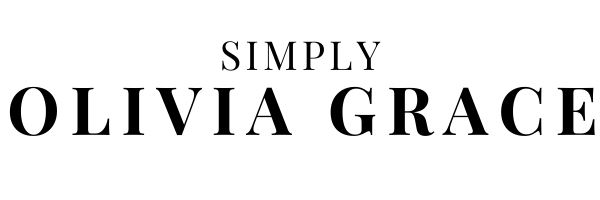
Recently I read Cal Newport’s book, Digital Minimalism. In one of the central points, Newport notices that the first generation with almost unlimited exposure to digital technology (the generation born from 1995 onward) was also the first generation to face crippling levels of anxiety. “They don’t remember a time before constant access to the internet,” Newport writes, “They’re paying a price for this distinction with their mental health.” (Newport 107)
That’s a scary thought, isn’t it? Now listen, don’t get me wrong. I’m so thankful for the internet, my phone, my laptop. But if you’re anything like me, you might want to recover a calmer sense of self, enjoy a simpler life uncluttered by the overconsumption of information, and be as happy in real life as you seem on social media. Whatever the case—if you want to simplify your digital life and recover a sense of peace apart from your phone—here are a few tips and tricks for taking the road less traveled when it comes to the age of technology.

- First and foremost, read this amazing article from Medium on how to make your technology work for you instead of the other way around. A few of my favorite tips: turn off all notifications except for text and phone calls, move the shiny tempting social media apps to a folder on the second page, delete excess apps, and turn your background to black to save battery life.
- Do a serious digital declutter. Delete programs and apps that you don’t use anymore. Challenge yourself to limit your apps to one page on your iPhone. Clear your internet cache and history. Erase all your downloads. Empty the trash. Unsubscribe from all those annoying spam emails. While you’re at it, backup your laptop. The more mental space, the better you’ll feel.
- Leave your phone in your dorm for the day. According to a study from Common Sense Media in 2015, the average teenager spends nine hours a day consuming digital technology. That can be anything: checking email, scrolling social media, watching Netflix, listening to music, watching live-streams, reading articles, or finishing homework. Nine hours. Try putting your phone away for the day and see if you don’t feel more relaxed without constant interruptions and notifications. Most people use their phone frequently to check the time and then fall down a social media wormhole; if that’s the case for you, start wearing a watch.
- Go with Google. With your Google account, you can access a range of options across devices. Why Google? Well, I’ve personally found their apps are more organized and user-friendly than Apple. Sync your pictures to Google Photos. Store all your assignments and essays on Google Drive, so you can access them from the library computers. Set up your Google Calendar with class schedules and study sessions.
- Streamline your news sources. These days, we’re drowning in information—not all of it reliable. Find yourself a few trustworthy news sources (Forbes, Washington Post, The New Yorker, etc.) and delete the rest. Check out this media bias chart for an analysis of biases across the media.
- Realize you don’t have to be “on call” all the time. No one will die if you don’t respond immediately (usually). Give yourself periods of time throughout the day with no music, no podcasts, no phone. Just let yourself be.
- Take long walks. Leave the phone behind. Learn to be alone with your thoughts. Enjoy the beauty of nature around you, listen to birdsong, let your mind wander. Embrace the solitude and the feeling of peace.
- Begin new hobbies that use your hands. We were made with a desire to work, to create things with our hands. Learn to play an instrument, pick up your old sketchbook, learn yoga, tinker with wood craftsmanship, organize your room, play a game of volleyball with your friends. A trick I learned from Atomic Habits by James Clear: if you don’t fill your time with productive hobbies, you’ll backslide into your previous “default” of scrolling social media mindlessly. Experiment with new hobbies. Make things with your hands.
- Start a journal. By writing, you learn what you think—not what people are telling you to think. You discover your own voice. You weed out the noise and insecurities, you travel the unknown paths of your own soul. Get to know yourself, your dreams of the future, the things that you enjoy, the little things throughout your day that make you happy. Feel free to vent in a place where no one will ever see. Writing allows you to clear your mind of all the clutter and explore creative ideas.
- Make leisure plans. Always have things to look forward to, whether fun weekend activities (going to the beach with friends), a seasonal sport (skiing in winter or hiking in spring), or a yearly a vacation to somewhere new. Make a list of things to look forward to that don’t involve screens. On a day to day basis, what are you looking forward to?



